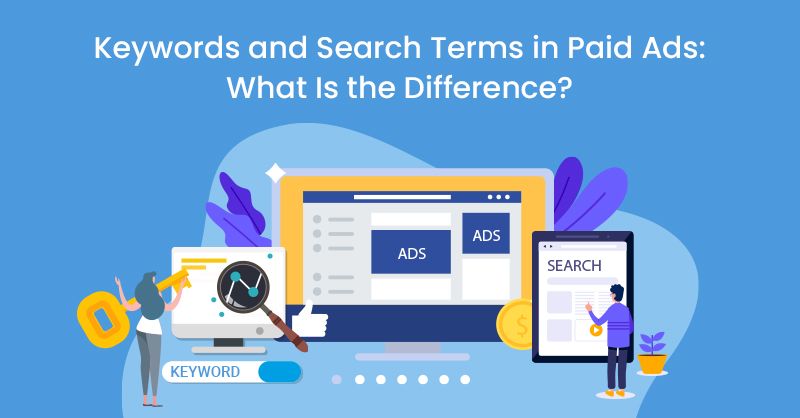 One of the most common questions we hear from prospects and new clients is, "Can you improve my Google AdWords performance?"
One of the most common questions we hear from prospects and new clients is, "Can you improve my Google AdWords performance?"
When we hear this question, we know straight off they are concerned about the negative effect a poor AdWords campaign is having on their advertising efforts. But we don't know to what extent, because each individual or company asking the question is in a different position from the previous one.
What element of PPC do they want to improve?
Do they want more traffic to their website?
Do they want more online sales?
Are they looking to increase leads from their contact forms?
Do they want more newsletter sign-ups?
Because of the different situations each client or prospect faces, we ask for either access to view their AdWords account, or request a detailed report outlining all of the relevant statistics in Google AdWords. (maybe even a Google Analytics report!)
What do we look at when deciding how we can improve the performance of your Google AdWords campaign?
Let's touch on a few of the areas of AdWords that I would look at first, and explain what we look for in each. By the time we've reviewed them, you should have some idea of some things to look at to improve your own Google AdWords campaigns.
Content Network
Did you leave the content network on? Google turns on the content network by default, leaving your campaign open to hundreds, possibly thousands, of impressions on websites that have Google Ads on them. This is not search-related, but contextual. Our own studies show that the content network, though it usually offers more inexpensive clicks it often renders a much higher cost per conversion.
Need to Understand the Content Network Further?
The AdWords program attempts to establish the 'theme', or topic, of your campaign (i.e. a doctor's office, selling mp3s, or asking for donations to save the whales) and tries to match your ads with web pages containing similar or relevant website content. It's not always successful, and may read 'save the whales' on a comedy site and display your ad, or match a dental office's ad with a page containing a story about evil dentists in a horror movie.
In my experience, this ‘display-style’ advertising won't bring the same type of qualified visitor that search does, because they are not outwardly looking for you, prepared to buy or inquiring about your products and services. Instead they are on a page and see your ad because the information is relevant to the content the visitor is reading about.
In most cases, we only recommend the content network if you require or wish to engage in brand-building and product saturation to the general public, or wish to spend less per click. The Google content network can be considerably less per click than Google Search.
keywords
Are you GEO Targeting your Ads?
We find that our market place for business is all of North America. Therefore, we make sure that everyone in North America sees our internet marketing advertising. Over time, we may find that only Ontario, British Columbia and the Eastern United States are converting into leads. So we choose to target all our advertising budget on these regions.
If we were to only serve clients that want internet marketing in Toronto, then we could focus our advertising to only the Toronto market. The same can be said if we wanted to focus on the State or Province level.
In short, if you are not GEO targeting your ads to the right region you are very likely wasting a lot of needless money!
Are Your Keywords Focused Enough?
Many clients tend to use very broad, generalized keywords in their campaigns. If you specialize in cosmetic dentistry in the east end of Toronto, why use the single keyword 'dentist'? This keyword will show for multiple searches from dentists in Toronto, to dentist training, to dentist equipment, to lawsuits against dentists. You want to attract people looking for your service and who want information or appointments.
Adding locations is a good place to begin expanding. You attract people looking for dentists in their area, including 'dentists in toronto', dentists in east toronto', and 'scarborough dentists'.
Then there is the specialty service of cosmetic dentistry. Expanding further, you are now using keywords like 'cosmetic dentists in toronto', 'cosmetic dentists in east toronto', and 'scarborough cosmetic dentists'. Not only are you placing your ads in a specific location, you are now advertising a more focused service, not just general dentistry.
Use Action Words With Your Keywords
If you are selling a product or service, consider adding action words to what we will now call your keyphrases. Selling mp3 music files? Add the words 'buy', 'purchase', or 'get' to your phrases. These action words attract those who are looking to do just these actions and buy music. They are more qualified than the person searching 'music'.
Isn’t this easy?
Have You Established the Goal Of Your Web Site?
Earlier, I talked about websites performing certain actions. Whether it's selling a product, signing people up to a newsletter, or increasing page views or making sure a certain page was viewed. This is the goal of your site, or one of multiple goals. When a visitor completes this goal, they can be measured as a ‘conversion’ through Google AdWords.
Tracking conversions allows us, to see which keywords and keyphrases are most effective for acquiring a conversion. We can begin to login and see which keywords are returning a positive return on investment for you.
We talked about improving a keyword's performance earlier on, but can it convert for you?
Your best performing keyword (in terms of total clicks) might have 100 clicks, but only 1 conversion, whereas another keyword might have only 25 clicks, but 7 conversions. And if your ultimate goal is to convert, why waste money on the 100 click word, even if it is bringing visitors to the site?
If your site goal is increased visitors, then you may choose to keep the keyword or key phrase!
This is Just a Quick Primer!
I have listed a great deal of items here that I find usually can use a great deal of attention when we take over a pay per click campaign. There are many other things that we can look at that I will likely go over at a later date.
Some examples include:
- Writing persuasive ad copy
- A/B testing your ad copy
- Including a robust negative keywords strategy in your campaign
- Utilizing Website Optimizer to improve landing page strategy
- Making your ad campaigns more focused
- Employing an ad scheduling strategy
The purpose of this article was really to help you capture the basic issues found in ad campaigns – not to make you commit to reading all of War and Peace.
Now go examine your pay per click campaigns and see if they are doing the very best for you or your company.






on
Nice write up, it is great to read and certainly offer valuable help and insight to keeping ahead of others in this game of no guarantees. It all depends on the persuasiveness of the Adcopy we have created. If the available information in the landing page is valuable and directs towards our search worthy pages of the site, it surely serves for what they are looking for. This leads to conversion, or at least you can keep them in the loop.